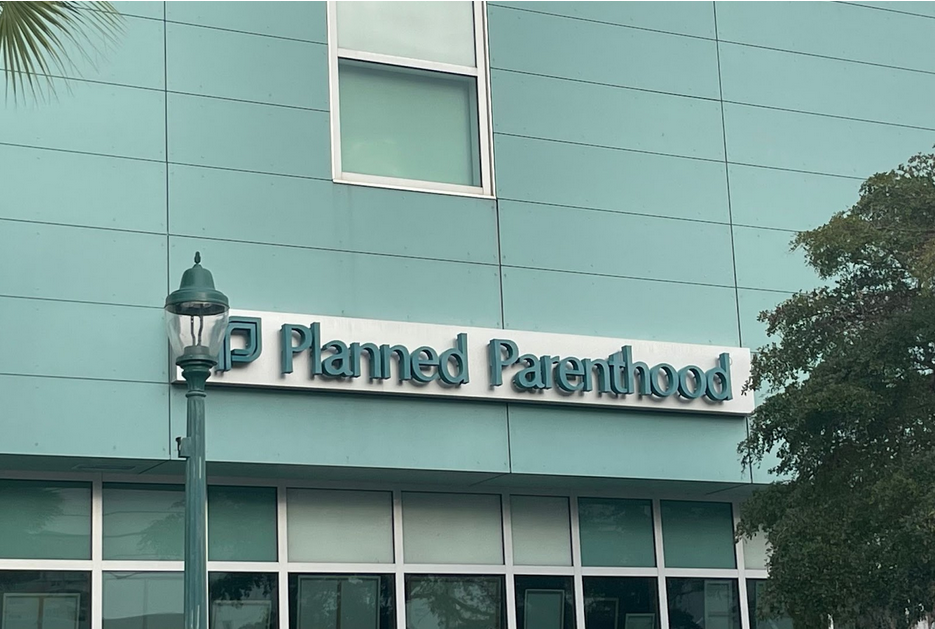Florida is the next state in line to restrict access to abortion further than it already has. Florida lawmakers introduced Senate Bill 300 on Mar. 7 which, as of Mar. 16, has been voted to advance by a Florida House committee and is now HB 7, titled “Pregnancy and Parent Support.” If approved as a law, it will ban abortion six weeks into pregnancy, drastically shortening the window from the current 15 weeks. Those 6 weeks start on the last day a person’s period ends, The bill states that anyone who “performs or actively participates” in an abortion outside the standard can be found guilty of a third degree felony, punishable by up to five years in prison, or a second degree felony if the abortion results in the death of the mother.
For some states, the policies being introduced in SB 300 aren’t anything new. Abortions are now fully banned in 13 states following the Supreme Court’s decision to overturn Roe v. Wade back in Nov. 2022. Georgia has banned abortions at six weeks of pregnancy, and four other states have bans that vary from 15 to 20 weeks of pregnancy. Only 18 states in the U.S. have protections in place for the procedure out of the 24 states where abortions are still legal.
Gov. Ron DeSantis signed a law in Apr. 2022 banning abortions after 15 weeks of pregnancy, lowering the window from 24 weeks, and only allowing exceptions if carrying the pregnancy to term would result in serious injury or death for the mother or if the fetus has a fatal abnormality. The new six-week ban will still allow anyone seeking an abortion a 15 week window only for those that are pregnant from rape or incest—an exception not previously available.
However, it is outlined in the bill that “at the time the woman schedules or arrives for her appointment to obtain the abortion, she must provide a copy of a restraining order or documentation providing evidence that she is obtaining the termination of pregnancy because she is a victim of rape or incest.” It is also stated that if a person who is seeking an abortion is a minor, the physician must report the incident of rape or incest to the central abuse hotline.
Abortions will only be considered legal if they are performed by a physician, and any medications intended for use in the procedure must be dispensed in person by the physician. The bill also prohibits the use of state funds for a person to travel to another state to receive services.
Karine Jean-Pierre, the White House press secretary, told the Miami Herald, “politicians like Governor DeSantis espouse ‘freedom for all,’ while directly attacking the freedom to make one’s own health care decisions.”
HB 7 and SB 300 also require the Florida Department of Health to report to the Governor and the Legislature information relating to the Florida Pregnancy Care Network, Inc., such as the amount of services and the expenditures used for the network’s programs, the number of clients served and what the demographic information for eligible clients is.
The bill is expected to pass into law despite Florida having the highest rate of abortion in the country based on data from the CDC. This would affect people from neighboring states such as Louisiana, Mississippi, Alabama and other states in the South who otherwise would have looked to Florida for abortion access.
The six-week ban is moving up through the Florida government as the state’s Supreme Court is still set to weigh in on the original 15-week ban. The 15-week ban that took effect in July 2022 is enforced, but the state Supreme Court is currently weighing a legal challenge to it. Plaintiffs in the lawsuit argue that the 15-week ban violates a state privacy clause that the Florida high court had previously cited to strike down abortion bans, and until the case is settled, the six-week ban wouldn’t be set in place even if signed into law.
Several protest groups rallied together in Miami when the bill was first presented earlier this month, and are planning weekly protests around the state called “Wake Up Wednesday.”
“We’re here today to show that maternal mortality rates increase three times in states post-Dobbs that have abortion bans in place, and we don’t want Florida to be next,” said Kat Duesterhaus from “Bans off Miami” to CBS New Miami.

